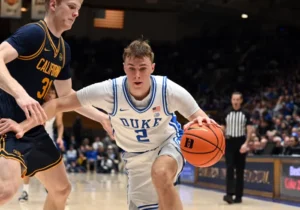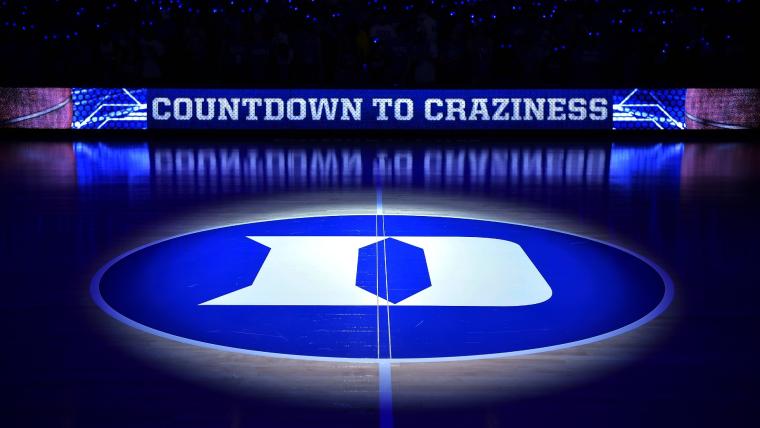In an era where collegiate athletes are increasingly capitalizing on Name, Image, and Likeness (NIL) deals, Duke University’s basketball prodigy, Cooper Flagg, faces a monumental decision: leap into the NBA and secure a potential $400 million contract or remain at Duke to chase an NCAA championship.
Flagg’s freshman year statistics are nothing short of stellar, averaging 19.7 points, 7.7 rebounds, and 4.0 assists per game. These numbers have solidified his projection as the No. 1 pick in the 2025 NBA Draft. However, Flagg has expressed a genuine interest in returning to Duke for another season, prioritizing team success and personal development over immediate professional gains.

This potential return, while commendable, carries significant financial implications. Delaying his NBA entry postpones his eligibility for a lucrative second contract, which, under current salary cap projections, could be worth up to $398.5 million over five years. This figure is based on the assumption of a 10% annual increase in the salary cap, with the 2024–2025 cap set at $140.59 million. The rookie scale allows for a maximum of 30% of a team’s salary cap, positioning Flagg’s future earnings in the upper echelon of NBA contracts.
While NIL deals have transformed the financial landscape for college athletes, providing them with opportunities previously unavailable, the earnings from these endorsements pale in comparison to NBA contracts. Flagg’s current NIL valuation stands at approximately $4.8 million, a substantial sum for a college athlete but a fraction of potential professional earnings. The allure of collegiate competition and personal growth must be weighed against the financial security and career progression offered by the NBA.
Moreover, the inherent risks associated with delaying professional entry cannot be ignored. Injuries or unforeseen circumstances could adversely affect Flagg’s draft stock and future earnings. The decision to stay or go is further complicated by the evolving dynamics of college basketball, where top talents are increasingly considering extended collegiate careers due to enhanced NIL opportunities.
Flagg’s choice will undoubtedly set a precedent for future athletes navigating the intersection of collegiate loyalty and professional aspirations. As the sports world watches closely, his decision will not only impact his personal trajectory but also influence the broader discourse on athlete compensation and career planning in the modern era.
In the end, whether Flagg dons the Blue Devils’ jersey for another season or steps onto the NBA hardwood, his journey exemplifies the complex interplay between passion, potential, and pragmatism in today’s athletic landscape.
Read More:
Read More:
Read More:
Hamas to Return Bodies of Bibas Family to Israel Amid Ongoing Ceasefire Negotiations
